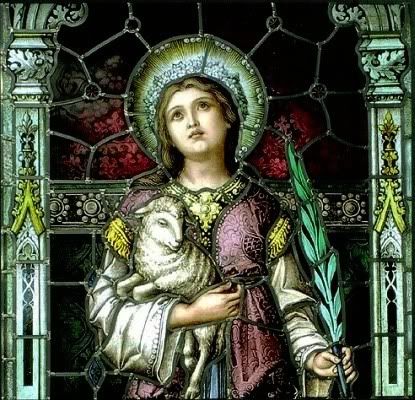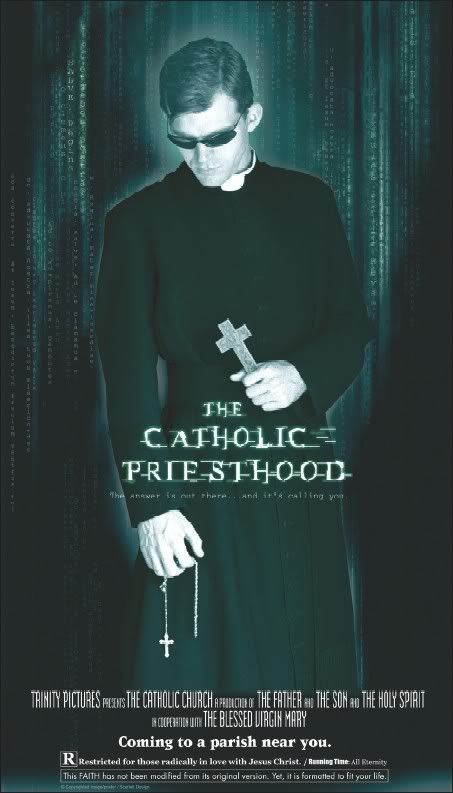I've just finished, Leonie Martin, A Difficult Life (the 'more unfamiliar' of St. Therese's sisters) by Marie Baudouin-Croix and it was excellent! I love the more obscure saints! I'm reading St Therese, Her Last Conversations, now. I've had a devotion to St Therese for a couple of years. Most do, but what a family! I hope her parents are canonized this year. What books are y'all reading during Lent? This one looks to be a great one. ~ susie
Ironies of Faith
Posted Feb. 21, 2008 9:43 AM || by Dr. Jeff Mirus || category ReviewSign up for Catholic Culture Insights today!
I promised to comment on Anthony Esolen’s fine book, Ironies of Faith: The Laughter at the Heart of Christian Literature, published last year by ISI Books. Esolen is a professor of literature at Providence College specializing in the classical, medieval and Renaissance periods. He translated and edited Dante’s Divine Comedy for the Modern Library edition, and he is a senior editor at Touchstone, which is alternately described as a magazine of mere Christianity and a journal of ecumenical orthodoxy. He is a Catholic and, in fact, a very deep and learned Catholic.
The great insight which it is the purpose of Ironies of Faith to explicate is that irony frequently lies at the heart of the most important insights into human life, and it is definitely and always at the heart of the Christian vision. By irony, Esolen means not mere cleverness or satire but the dramatic reversals attending the inescapable fact that we are often most ignorant just when we think we know something or, to take the reverse, those who seem most ignorant often understand reality better than those reputed to be wise. Some of the richest moments of both life and literature occur when we realize the irony in some seemingly obvious situation: again, those who claim to know are ignorant; those who appear ignorant, know.
The great debater, wit and apologist, G. K. Chesterton made a living off this essentially paradoxical nature of irony. His trademark was to turn ideas upside down, and to make the real truth blaze out just where we thought it wasn’t. Esolen doesn’t use Chesterton to illustrate his point, but many readers will see the point more clearly by thinking of Chesterton in this context. Esolen himself mines the great classics and, in so doing, provides a penetrating introduction to more than a dozen masterpieces that we might otherwise either fear to approach or fail to fully appreciate. Through authors such as Virgil, Shakespeare, Augustine, Dante, Tolkien, Manzoni, Spenser, Dostoyevsky, Dickens, and the anonymous medieval author of Pearl, Esolen highlights the ironies of time, power, love and childhood which lie at the heart of the Christian mystery.
Consider: Our Lord teaches that whoever loses his life will save it, an irony of time. St. Paul boasts of his weakness, an irony of power. The great Latin Father, Augustine, gives us an example of love's irony in this famous saying: “So great is the difference between God’s approach and man’s approach to woman, that a man’s approach makes a wife of a virgin, but God’s makes a virgin of a wife.” And Christians can never forget that the hope of the world is not a great king in the full strength of his manhood, but a little child. God, and Christians with Him, really do revel in irony. Thus the true disciple will always find joy through suffering. Persecuted and abused, he will still be both first and last to enjoy the laughter forever bubbling up from the very core not only of Christian literature but of Christian life.
Jesus praises his Father for revealing the secrets of the Kingdom not to the wise and learned, but to the little ones—the childlike. On this ironic note, I should also mention that the first part of Esolen’s book, “Humility and Vision”, provides an outstanding introduction not only to irony but to artistic (and therefore human) criticism. Esolen insists that the critic must approach the object of his interest in humility and love, that is, like a child. Otherwise, he will interpret everything by imposing his own arrogant failings on whatever he reads, indeed on everything and everyone he encounters. Esolen sees clearly that too much contemporary criticism reveals nothing more than the passions, foibles and fallacies of the interpreters. This section alone is worth the price of admission.
A point the author does not make directly (but clearly intends the reader to understand) is that irony lies also at the center of every conversion experience, great and small: In our pride, we thought we knew; but we were blind, and now we see. For this reason, the reader can draw not only intellectual but spiritual profit from the book. If you love great literature and wish to understand both literature and life in a more deeply and essentially Christian way, you owe it to yourself to read Anthony Esolen’s Ironies of Faith.
[Anthony M. Esolen, Ironies of Faith: The Laughter at the Heart of Christian Literature, ISI Books, Wilmington DE, 2007. 412 pp. Paper $14.40; Cloth $22.40 from ISI Books; also available on Amazon.]























